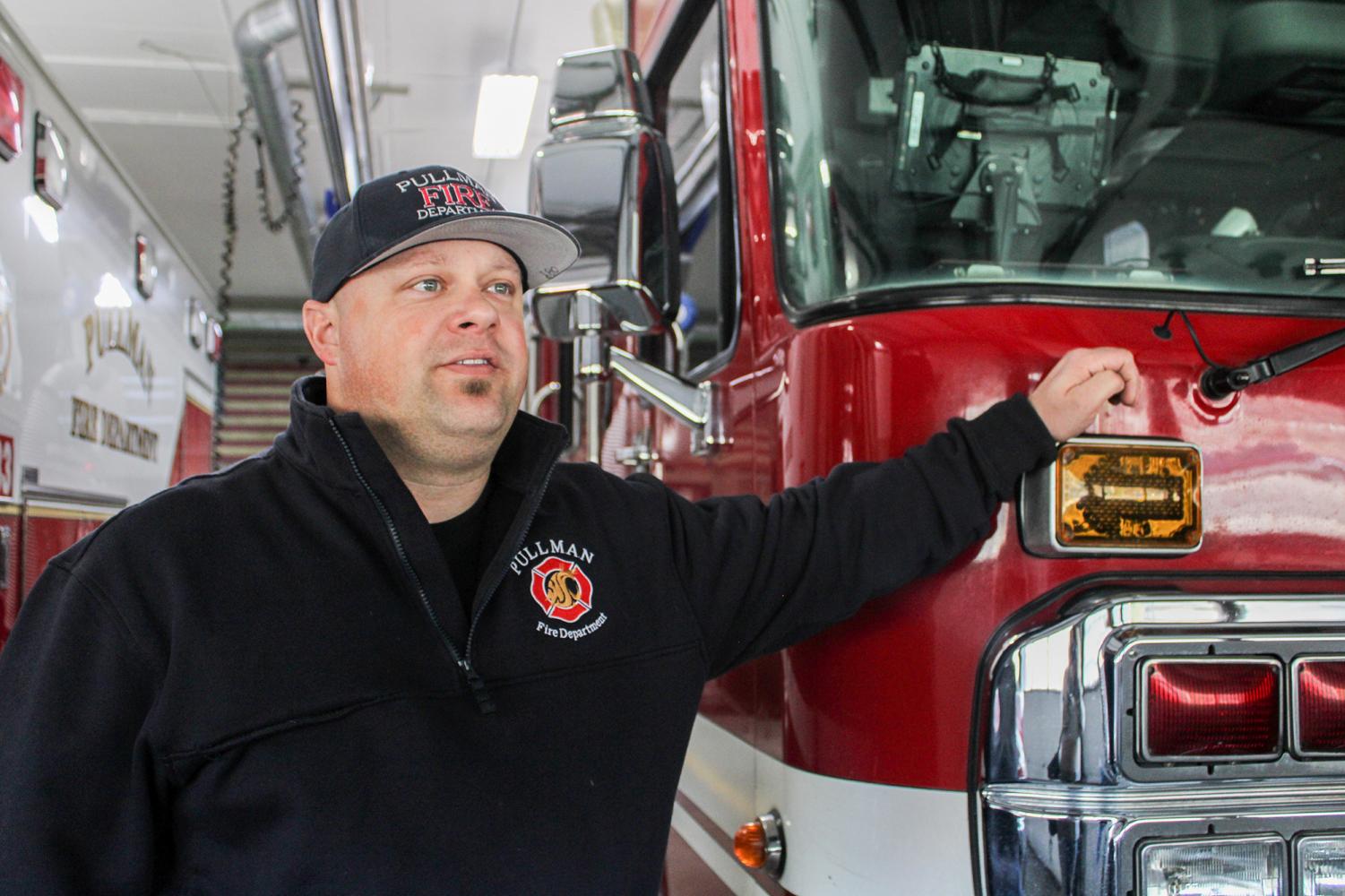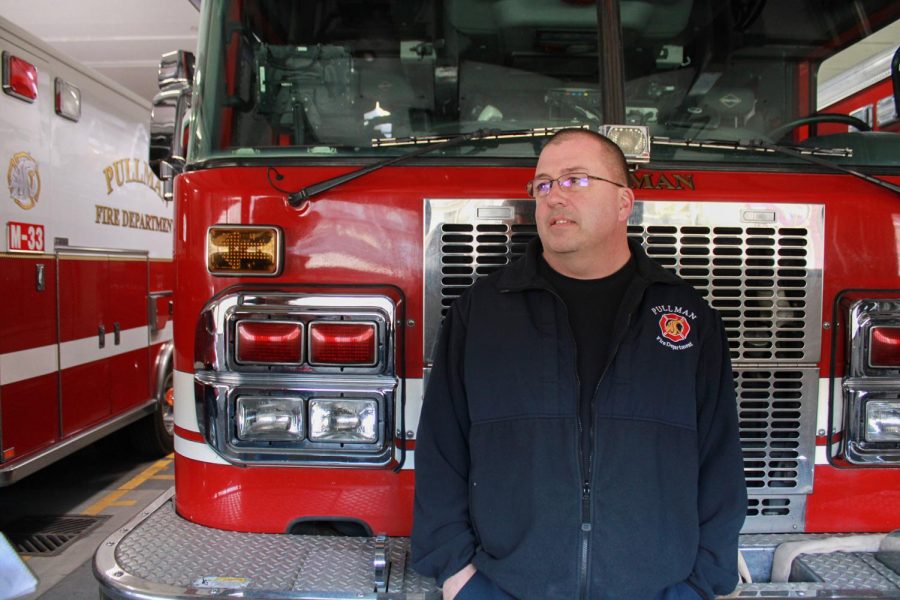
Emma Ledbetter is a senior microbiology major from Newcastle, Washington, and the news editor for fall 2021 and spring 2022. Emma started working for The...


Firefighters offer resources to people in bad situations; suffer mental health stigma and physical toll
March 3, 2020
When the women and men of the Pullman Fire Department get called, they make it their mission to make a bad day better for local community members.
“All the people we interact with have their own story and it’s kind of cool that we get to become part of their story,” Pullman firefighter and paramedic Jerid Hilderbrand said. “Typically, it’s in a bad chapter but we hopefully get to become a positive outcome of that chapter.”
People only call the fire department when they are out of resources, said Pullman Fire Captain James Turpin.
He said the Pullman firefighter’s union has a fund for firefighters to help victims, whether that is with a cab ride, getting diapers for a mother in need or providing food for children involved in a non-serious car crash.
On one medical call, the first responders helped an elderly man who fell out of bed, then stayed a few minutes longer to help his wife fix the plumbing issues she was having with her sink, Hilderbrand said.
A common misconception is that firefighters only respond to fire or medical calls, Turpin said.
“We do so much more than that,” he said.
Turpin said Pullman Fire Department also does fire prevention, responds to hazardous materials incidents and provides public education, among many other duties.

“We get paid to go on adventures,” Hilderbrand said. “It’s different from day to day.”
The firefighters are constantly training and learning new techniques to keep their skills and knowledge up-to-date with standards of medical care, Turpin said.
Firefighters have to learn about different medications and equipment, Hilderbrand said. Currently, they are training to use pre-hospital ultrasound machines that could help detect trauma in patients and allow paramedics to give them early treatment.
“It’s amazing that we’re able to continue to blur the lines of pre-hospital care versus in-hospital care,” Hilderbrand said. “We’re doing a lot of the same treatment modalities out here that they would do in the hospital.”
Being a firefighter takes its toll, both mentally and physically, Turpin said.
“Luckily,” Hilderbrand said, “there’s been a humongous push in mental health in first responders over the past couple years to eliminate a stigma that was really burned into the industry.”
Turpin said firefighters have a tendency to help their patients cope with bad situations by putting some of the patients’ burdens on themselves.
“You need to have a certain temperament to give more of yourself than you take from others,” Hilderbrand said.

Emma Ledbetter is a senior microbiology major from Newcastle, Washington, and the news editor for fall 2021 and spring 2022. Emma started working for The...